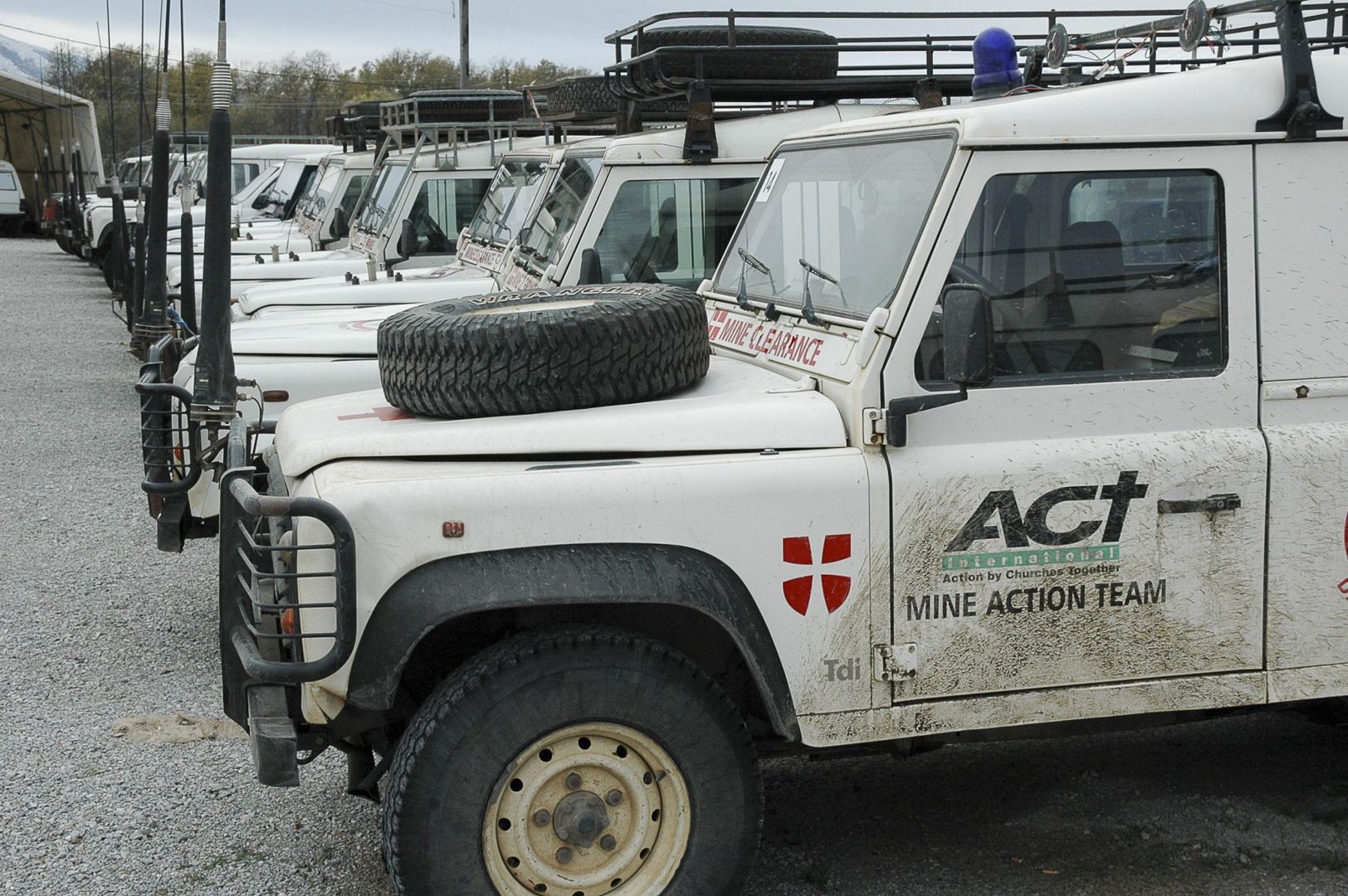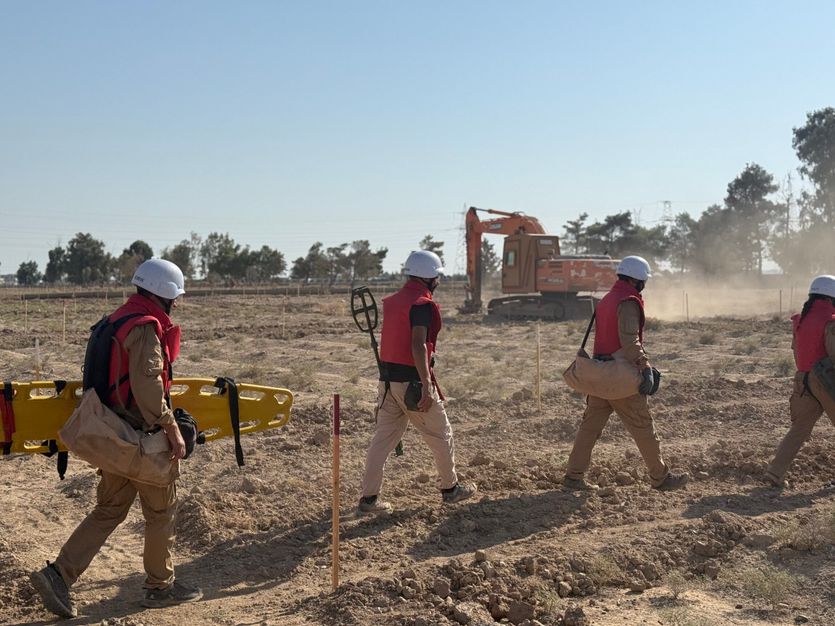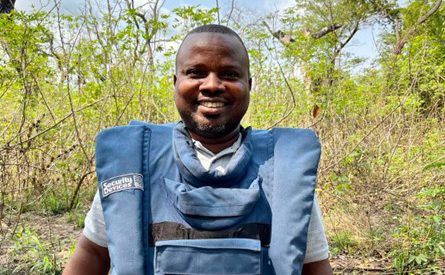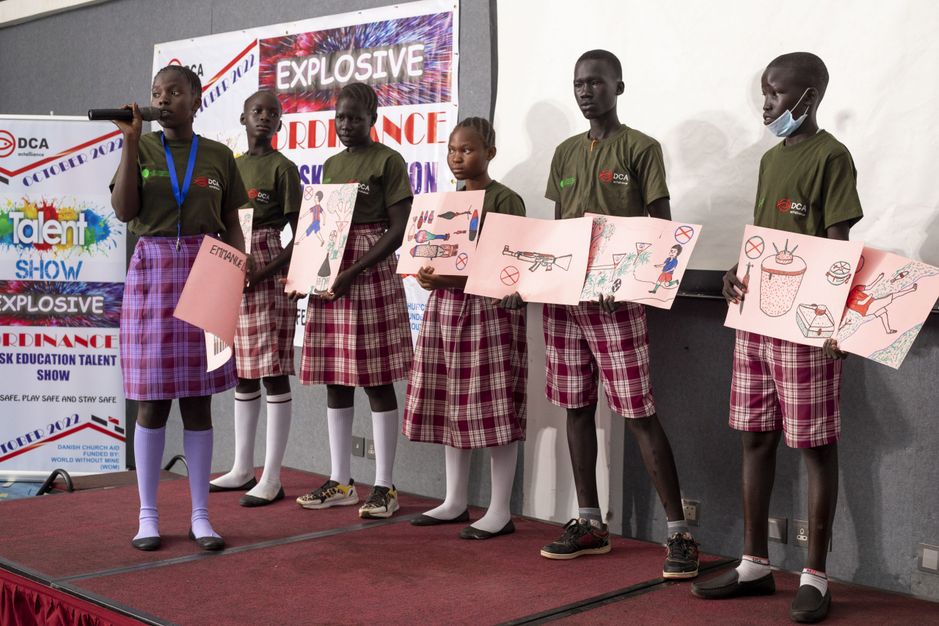As part of the newly established international aid organisation ACT International, Action by Churches Together, DanChurchAid participated in relief work in Kosovo in the 1990s. This included responding to urgent needs such as tents, blankets, food, and medicine, contributing to the extensive reconstruction work, and finally on behalf of ACT International, DCA took on the responsibility of clearing landmines and unexploded cluster bombs after the war.
The Yugoslav Wars in the Balkans
The Yugoslav wars took place between 1991 and 2001. During that period, the former Yugoslavia descended into a series of separate but related ethnic conflicts, independence wars and insurgencies that ultimately led to the disintegration of the Socialist Federal Republic of Yugoslavia.
The fighting was intense and the different parties to the war stopped at nothing to get the upper hand – including the use of landmines and terrorist bombs, committing massacres, ethnic cleansing, and rape.
More than 150,000 people were killed, many more injured, and millions were displaced from their homes in a series of wars that jointly caused the greatest humanitarian disaster in Europe since World War II.
800 minefields in an area covering app. 10,000 km2. When the war ended in Kosovo in 1999 the country was one of the most densely mined areas in the world.
Most of the mines were put there by the Serbian army and the rest by the Kosovo Liberation Army (KLA). In addition, NATO’s bombing raids had left quantities of unexploded cluster bombs.
This meant that the thousands of refugees not only returned home from neighbouring countries to destruction – but also potential injury and death despite an end to the fighting.
The start of the humanitarian demining program
DanChurchAid had already supported humanitarian demining in Angola and Cambodia but had no experience of carrying out the work itself.
Nevertheless, on behalf of the newly founded ecclesiastical cooperation organization ACT International (Action by Churches Together), DanChurchAid was assigned the task of clearing mines and informing the population about the mine danger in Kosovo.
READ MORE: Mine Clearance – this is how we work
Refugees returning to cleared land
It was the start of an extensive demining programme, which has since become a central part of DanChurchAid’s DNA.
“Clearing landmines and ammunition is a prerequisite for refugees to return home and resume their lives after war. Peace simply rests on the premise that people can return home without fear of stepping on a land mine or a bomb,” says Birgitte Qvist-Sørensen.
Mines at schools and in marketplaces
“In Kosovo, the mines were laid out in the most brutal way, typically hidden close to houses, by schools, wells, marketplaces and in fields,” recalls Sam Christensen, who was employed to lead the DanChurchAid’s demining work in Kosovo.
More than 600 civilians were killed or seriously injured because they came into close contact with mines or cluster bombs. It was therefore about teaching children and adults to be careful and avoid kicking or picking up anything that looked suspicious.

Don’t touch anything suspicious
“We started the information work in Albania, but the refugees were in a hurry to get home, and therefore we had to move into Kosovo,” says Sam Christensen.
In Kosovo DCA needed to work with haste and remove as many mines and cluster bombs as possible, so that the population could once again move around risk-free and start rebuilding their houses and cultivating their land.
Centimeter by centimeter, the deminers carefully worked their way forward with metal detectors, mine sticks and grass shears. Every time there was a “win”, a special procedure ensued to have the mine disarmed and removed for destruction.
Trained local deminers
Special training is necessary to identify and remove landmines and to inform the local population about the danger. But instead of sending hordes of foreign experts to Kosovo to clean up, DanChurchAid embarked on a mission to train the locals to become deminers.
Before long, hundreds of local men and women were trained.
In the years that followed they removed most of the mines and cluster bombs, in collaboration with other demining teams, so that everyone could move freely again.
After Kosovo, several of the locally trained deminers continued to train local clearance teams in, among other places, Albania, Angola, Lebanon, and South Sudan.
Globally recognised demining organisation
Over the years DanChurchAid has grown to become an organization that is globally recognised for its contribution in demining and ammunitions clearance. And the job isn’t over.
Ammunition and mines are left virtually everywhere – either by design or as remnants of war. Even in 2023. Roads, fields, and forests can be contaminated with explosives, but also houses, schools, gardens, parks, picnic areas, and hospitals.
No matter where the explosives are, the task of clearing an area is time-consuming – progress is made slowly, one centimeter at a time. If the clearance is not done properly, people may return to land that is still contaminated – or the deminer might inadvertently set off an explosive. The end result is injury – or death.
Because it is not without danger to clear mines. To avoid it DanChurchAid strictly follows international security standards and continuously tightens security and safety procedures. This has kept accidents at an absolute minimum.
DanChurchAid has collected reliable data since 2008 – and between then and 2022, DanChurchAid cleared mines and ammunition on around 200 km2 of land – in the DR Congo, Libya, Iraq, and Syria in addition to the countries mentioned above.





